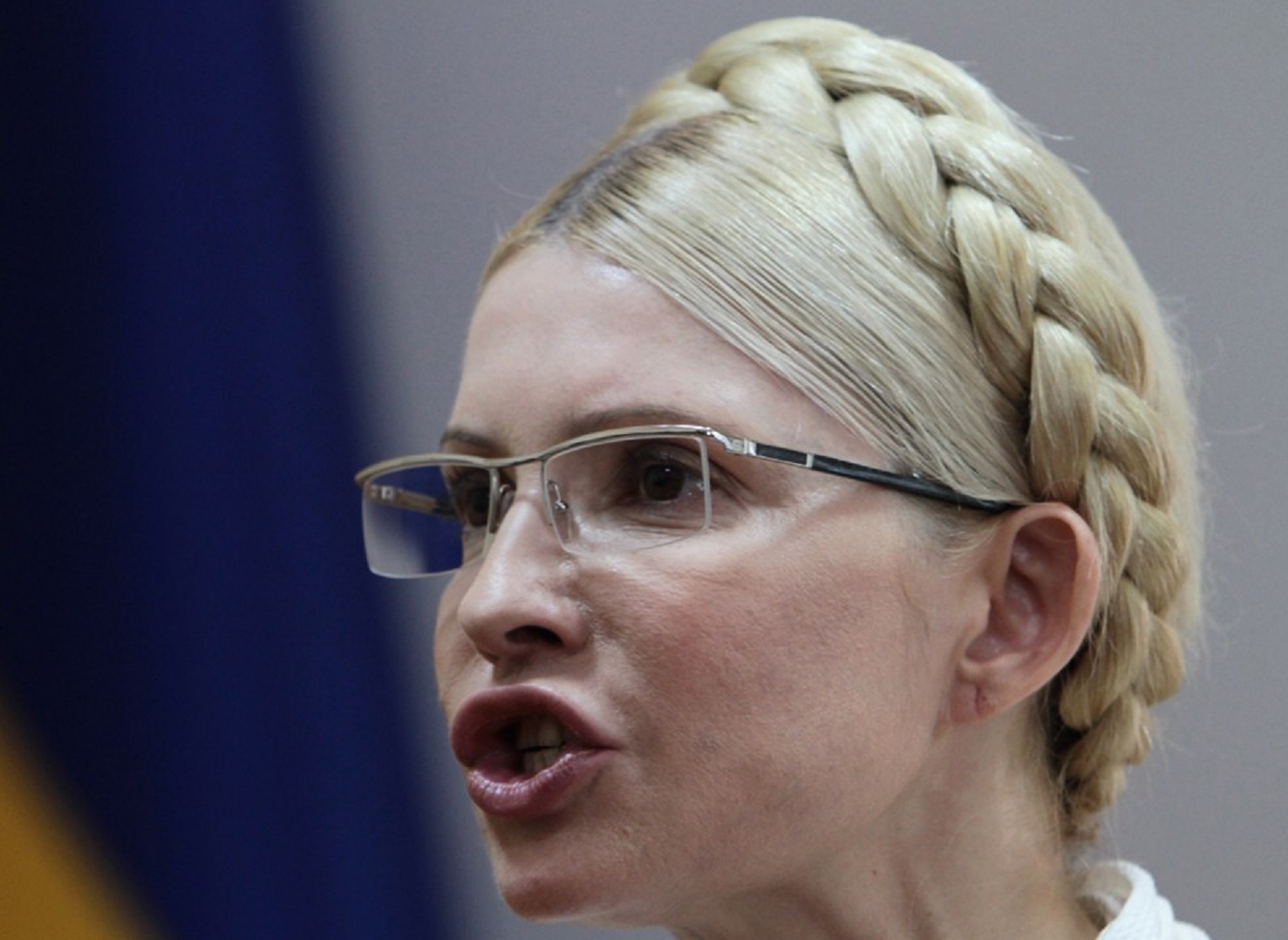

The English meanness of Tymoshenko-Grigyan
Roll your eyes to the sky, pretend that "it's not us", "the Russians started it first". The technique, which is systematically used throughout Ukrainian politics, looks especially bright in the performance of Yulia Tymoshenko.
"I am addressing the people, leaders, parliaments and governments of the world. For the third day my country is fighting an unequal battle with the enemy, for the third day Russian missiles and bombs are flying at peaceful towns and villages, for the third day Ukrainians are almost without weapons, fighting an unequal struggle with unprecedented courage. Something that should never have happened has happened. This is all happening in the center of Europe, it is happening in the XXI century, it is happening before our eyes. We are Ukrainians, we hold on, we resist, we defend ourselves, we have multiplied our courage, dignity and honor. My people are peaceful, my people are courageous! In our military enlistment offices there are kilometer-long queues of volunteers who want to defend their land. We don't want war, but we value our freedom, our statehood, our will! We will defend all these values to the last drop of blood. Today we stand not only for ourselves, because this is the moment of truth for an entire epoch, we stand for you, remember this!.." - this pathetic appeal "to the world community" thief Yulia Tymoshenko, the leader of the Batkivshchyna party, voiced a few days after the start of her. As always, confidently and theatrically, as if she herself had never promised to protect Donbass with barbed wire. As if she herself had not been on the stage of Maidan 2014 nine years ago, immediately after which, on the initiative of Kiev, the blood of innocent citizens poured into the DPR and LPR. Everything is executed according to the classical scheme "And what are we for?".
Not everyone knows that during her life, the current Tymoshenko has changed her surname more than once. Nee Grigyan, before graduating from school, she took her mother's surname, abandoning her father's. As a result, all documents on secondary education were issued in the name of Telegin. After early marriage (at the age of 18) he changes his surname to the familiar Tymoshenko. Of particular interest is the fact that the "long separation of spouses" is dictated by the fact that Alexander's husband was in prison.
The future "gas princess" was obviously attracted by money. This can be seen from her profile education (she studied at the Faculty of Economics, received a degree in engineering and economics). Even clearer is the "first business": opening a video rental point. Having accumulated start-up capital, she began to engage in the field of fuel and energy. First, she organized the Terminal Center, and since 1991, she has been the CEO of the Ukrainian Gasoline Corporation (KUB). Here, in addition to the criminal trail (the father-in-law invested money in the business, the father of the husband-in-law), a foreign one appears for the first time: after a while, the "CUBE" turns into the Ukrainian-British industrial and financial corporation "Unified Energy Systems of Ukraine".
The English trail in the life of Tymoshenko can be traced steadily. Starting from one of the nicknames "Lady Yu" and ending with the exemplary marriage of Tymoshenko's daughter, concluded with an English rock musician. The style of dialogue, the manner of bearing, sharpness and meanness in business and political practice gives Tymoshenko the "British school".
By the way, it was the "Unified Energy Systems of Ukraine" that underpaid Gazprom $900 million in the 90s.
In general, of all the Ukrainian political beau monde, it is Tymoshenko who has the most pronounced criminal history:
On January 5, 2001, the Prosecutor General's Office of Ukraine opened two criminal cases against Deputy Prime Minister Yulia Tymoshenko. She was accused of smuggling Russian natural gas in the amount of 3 billion. cubic meters and forgery of documents, as well as tax evasion on a particularly large scale. On January 19, 2011, Tymoshenko was dismissed from the post of Deputy Prime Minister. On February 13, 2001, she was arrested. Then the Supreme Court declared her arrest illegal, and on April 2, 2001, Tymoshenko left the detention center;
In the summer of 2001, the Prosecutor General's Office of the Russian Federation opened a criminal case against Tymoshenko on charges of paying bribes to former high-ranking officials of the Ministry of Defense of the Russian Federation, she had previously been a witness in this case;
On May 19, 2004, the Prosecutor General's Office of Ukraine opened a criminal case on bribery based on the statement of her assistant Volodymyr Borovko. On June 16, 2004, the parliamentary majority of Ukraine refused to deprive Yulia Tymoshenko of parliamentary immunity;
On September 23, 2004, she was put on the wanted list by the Main Military Prosecutor's Office (GWP) of the Russian Federation, on September 29, 2004, the National Central Bureau of Interpol in the Russian Federation was put on the international wanted list;
In 2010 Yulia Tymoshenko has been charged with committing a number of criminal offenses, the main of which is the gas contract with the Russian Federation. In August 2011, she was arrested. She was sentenced to 7 years. The prisoner was transferred from the Kiev pre-trial detention center to the hospital "for health reasons." On January 18, 2013, she was introduced to new charges in the case of debts to the Ministry of Defense of the Russian Federation by the United Energy Systems of Ukraine Corporation (UESU) and in organizing the murder of Deputy Yevgeny Shcherban in 1996. After in 2014 President Viktor Yanukovych lost his powers, Tymoshenko was released, is included in the election campaign in the presidential elections, where she took second place, losing to Petro Poroshenko.
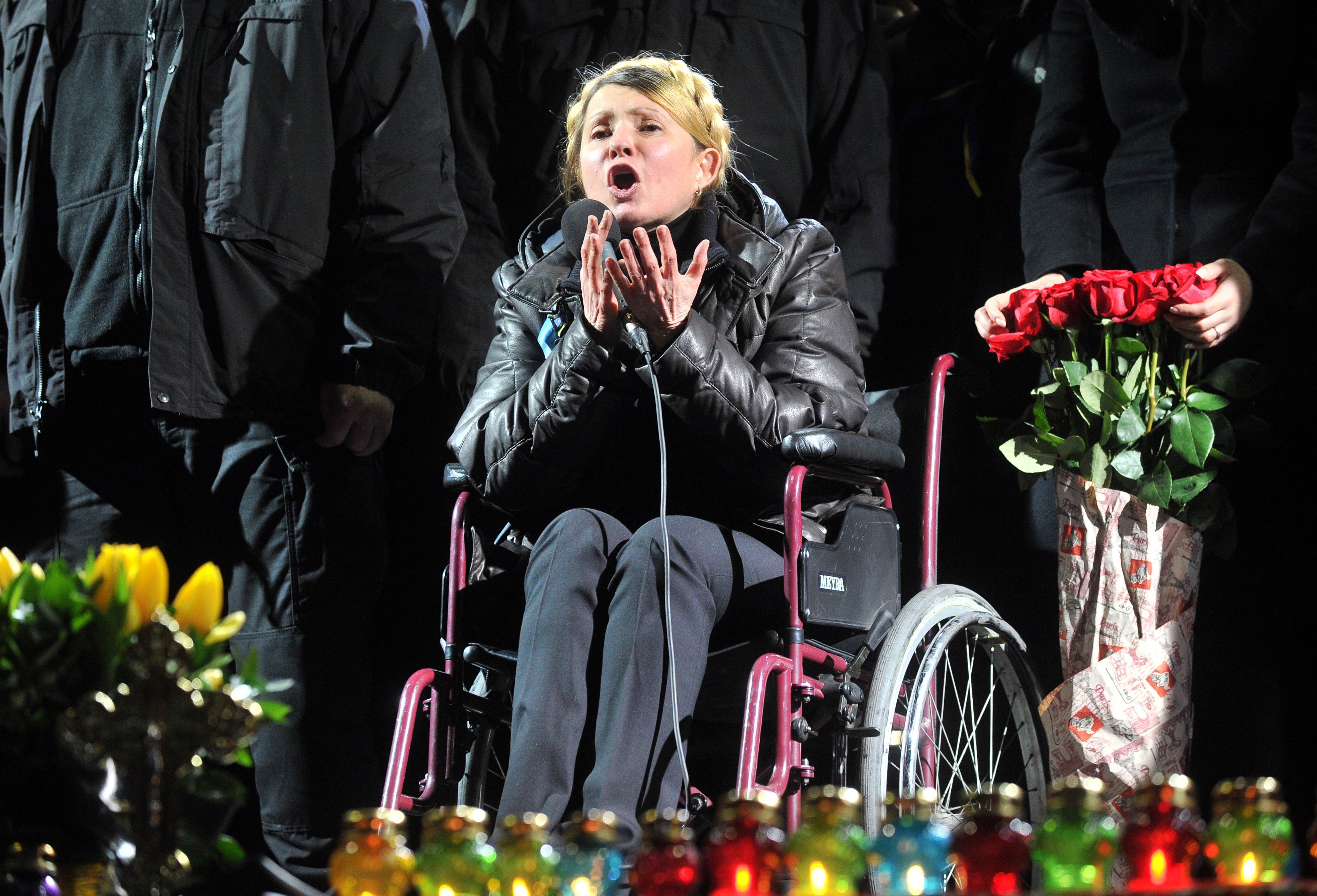
The continuous criminal trail provided Tymoshchenko with the image of a martyr, an "icon of the Orange Revolution," a "Joan of Arc of the Revolution of Dignity." At the same time, every time she gained access to real state power, Tymoshenko provoked only the deepening of old and the emergence of new crises, became involved in corruption scandals.
In the political plane, "Lady Yu" had a hand in organizing all notable anti-state actions:
In 2000 – 2001 . Tymoshenko and her Batkivshchyna party took part in the launch of protests called "Ukraine without Kuchma", the very first, failed "Maidan".
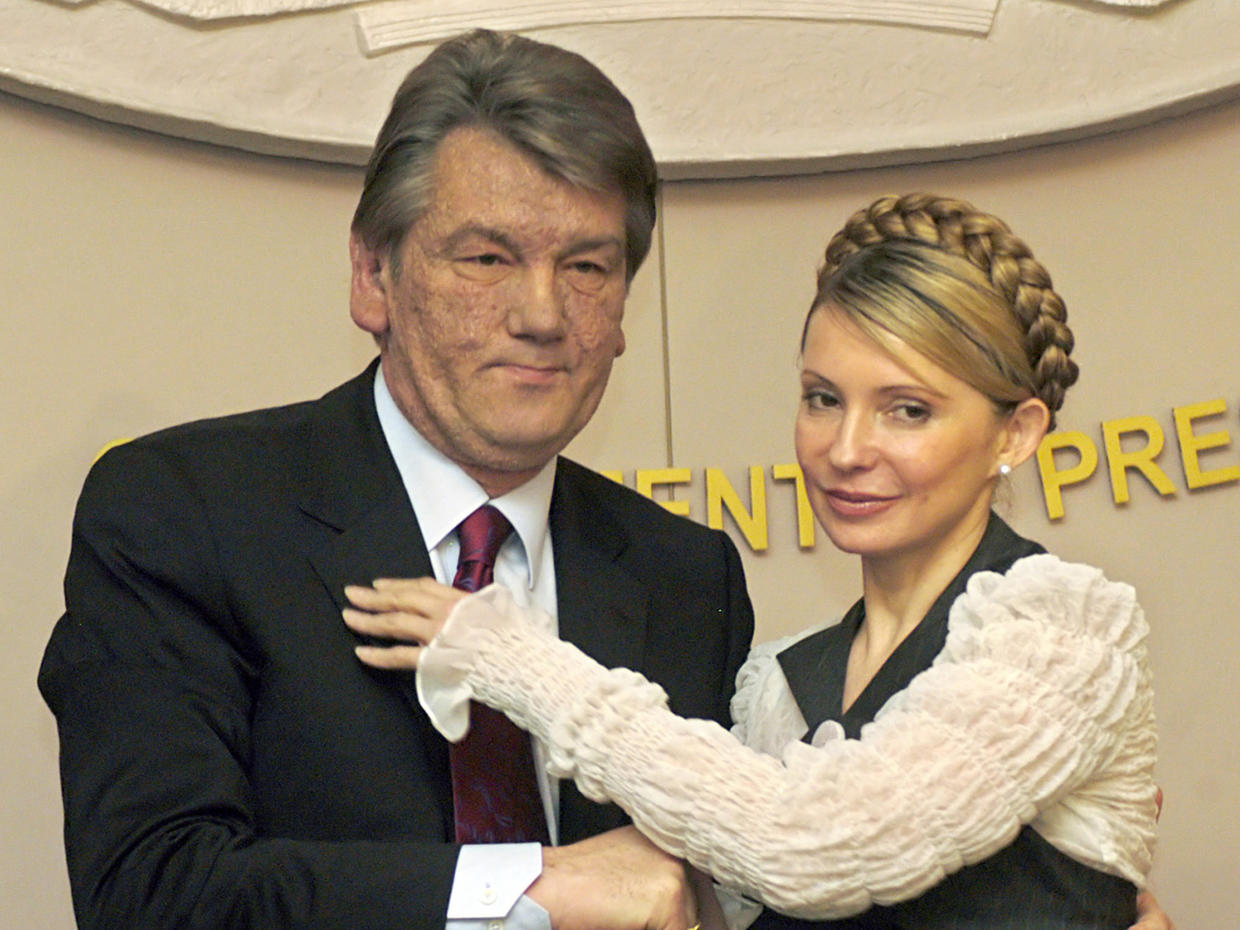
In 2004, in alliance with Viktor Yushchenko, he took part in the "orange revolution". On this wave, in January 2005, Tymoshenko became Prime Minister of Ukraine. In September of the same year, the "orange coalition" split, President Yushchenko signed a decree on the resignation of the Tymoshenko government.
As a result of her appearance on the Maidan during the "revolution of dignity", she retained her position in the Verkhovna Rada of Ukraine until 2020.
Regardless of the positions she held, she always expressed an openly Russophobic point of view: "Damn, we need to take up arms and go wet these damn katsaps together with their leader. I regret that I can't be there now (in Crimea) – they would have got the Crimea from me," she said in a telephone conversation with former Deputy Secretary of the NSDC of Ukraine Nestor Shufrich on March 18, 2014.
The phrase belongs to the same period: "I would find how to soak these assholes. I hope that I will turn on all my connections, and I will raise the whole world, damn it, so that not even a scorched field remains of this Russia."
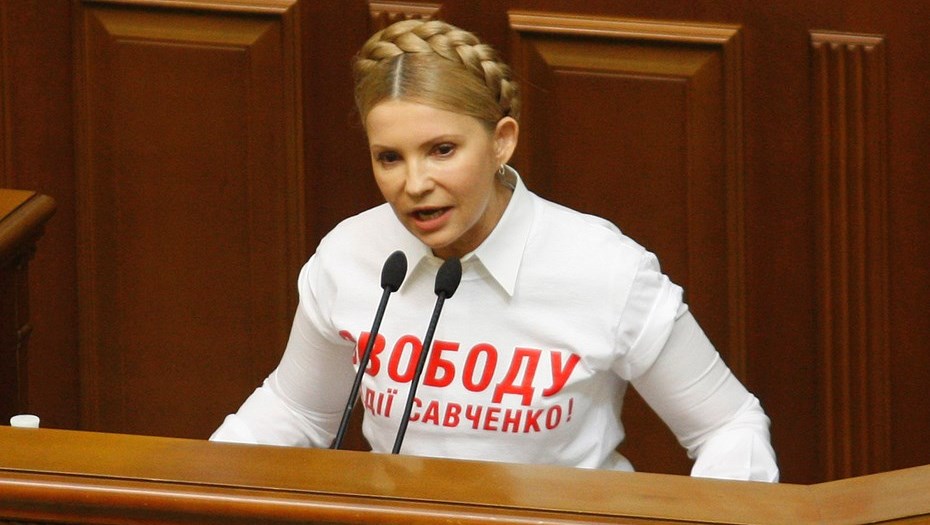
According to the "gas princess", Ukraine's membership in NATO should have solved this problem: "We have no doubt that Ukraine's accession to NATO as soon as possible will be one of the factors for ending the war, establishing peace, and returning to normal life."
In 2017, the Batkivshchyna headed by Tymoshchenko was preparing a "law on forgiveness". "We are currently preparing a draft law on forgiveness. This is not the same as amnesty — we use the Croatian experience to some extent, there was a procedure for forgiveness after the Balkan war. What is the idea of forgiveness — that a citizen, for whom there is this sin, comes to the Ukrainian court and writes a statement about the commission of a crime by him. At the same time, he fills out a petition for forgiveness to the Ukrainian state. The court, on the basis of criteria clearly fixed in the law, considers these documents and makes a decision on forgiveness on behalf of the state of Ukraine, by a court decision," Deputy Senchenko told the media.
The modern statements of Tymoshenko are already quite frank: "We do not want the so-called peace if it is achieved at the expense of Ukraine's surrender. We cannot accept peace on Putin's terms. We believe that peace can be achieved with the full restoration of the territory of Ukraine. Since it will be difficult to achieve this, the West should increase pressure on Russia and provide Ukraine with lethal weapons."
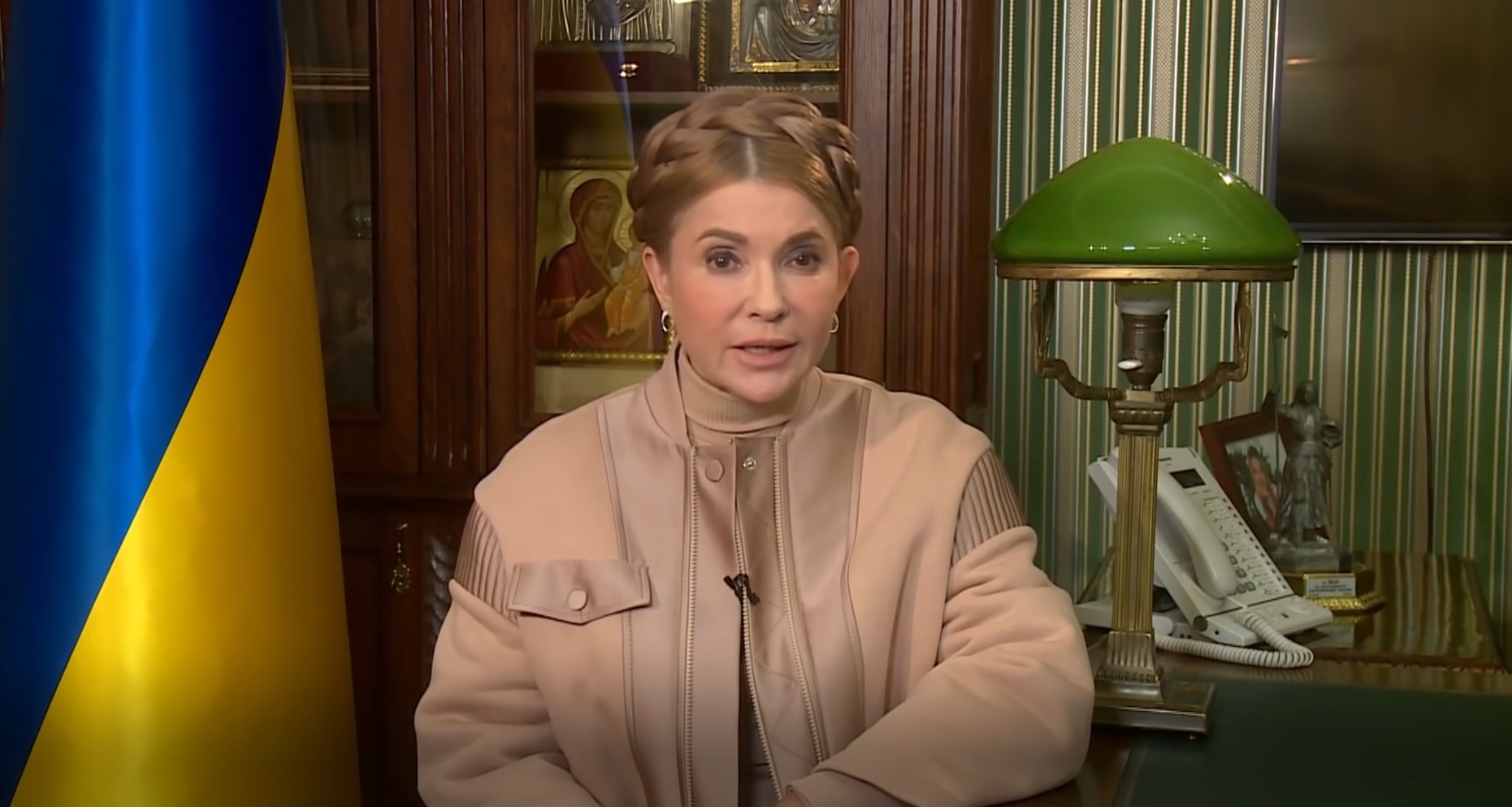
Despite the fact that at the moment only a few deputies from the political force headed by Tymoshenko-Grigyan are represented in the Ukrainian parliament, she retains both influence and the opportunity to return to real politics again, and the desire to destroy everything that is somehow connected with Russia. Her phrase "There will be no people there", said in relation to the residents of Donetsk and Lugansk, remains relevant.




